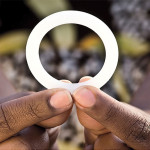The global push to prevent and treat HIV among infants and children is set to fail to meet the ambitious targets for 2020 that the Joint United Nations Programme on HIV/AIDS (UNAIDS) established in 2016. Recent gains on these fronts among adults have outpaced those seen among their younger counterparts.
UNAIDS presented these sobering findings at the International AIDS Conference (AIDS 2020), which was held virtually last week.
The 2020 targets for infants and children sought to dramatically increase antiretroviral (ARV) treatment among expectant mothers living with HIV to prevent transmission of the virus to their infants, increase treatment among HIV-positive babies and children and prevent HIV acquisition among children and adolescents.
Such targets sought to reduce annual HIV acquisitions among babies and children younger than 15 to below 40,000 by 2018 and below 20,000 by 2020. New estimates published in the UNAIDS’s annual report on the global HIV pandemic, however, indicate that in 2019, 150,000 children contracted the virus. This did, however, represent a 52% reduction in the annual rate since 2010.
In 2019, an estimated 85% of pregnant women with HIV received ARV treatment. Nevertheless, as UNAIDS points out, treatment access in this population remains uneven. Infants are still contracting the virus in substantial numbers because of unequal access to HIV treatment services among expectant mothers, pregnant women falling out of medical care for the virus and pregnant and breast-feeding mothers newly contracting HIV.
UNAIDS has also pushed for the world to provide 1.4 million children living with HIV with ARV treatment by 2020. Last year, however, just 950,000 (53%) of the 1.8 million HIV-positive children were on ARVs. This compared with a 67% treatment rate among adults living with the virus.
“To see so many tools available, so many new HIV infections among children that have been prevented, so many children living with HIV doing well, but to see others missed and still left behind is a tragedy,” Winnie Byanyima, the executive director of UNAIDS, said in a press release. “We cannot accept that tens of thousands of children still become infected with HIV and die from AIDS-related illnesses every year.”
To read a press release about the study, click here.
To read the report, click here.
To see all POZ coverage of AIDS 2020: Virtual, click here.







Comments
Comments